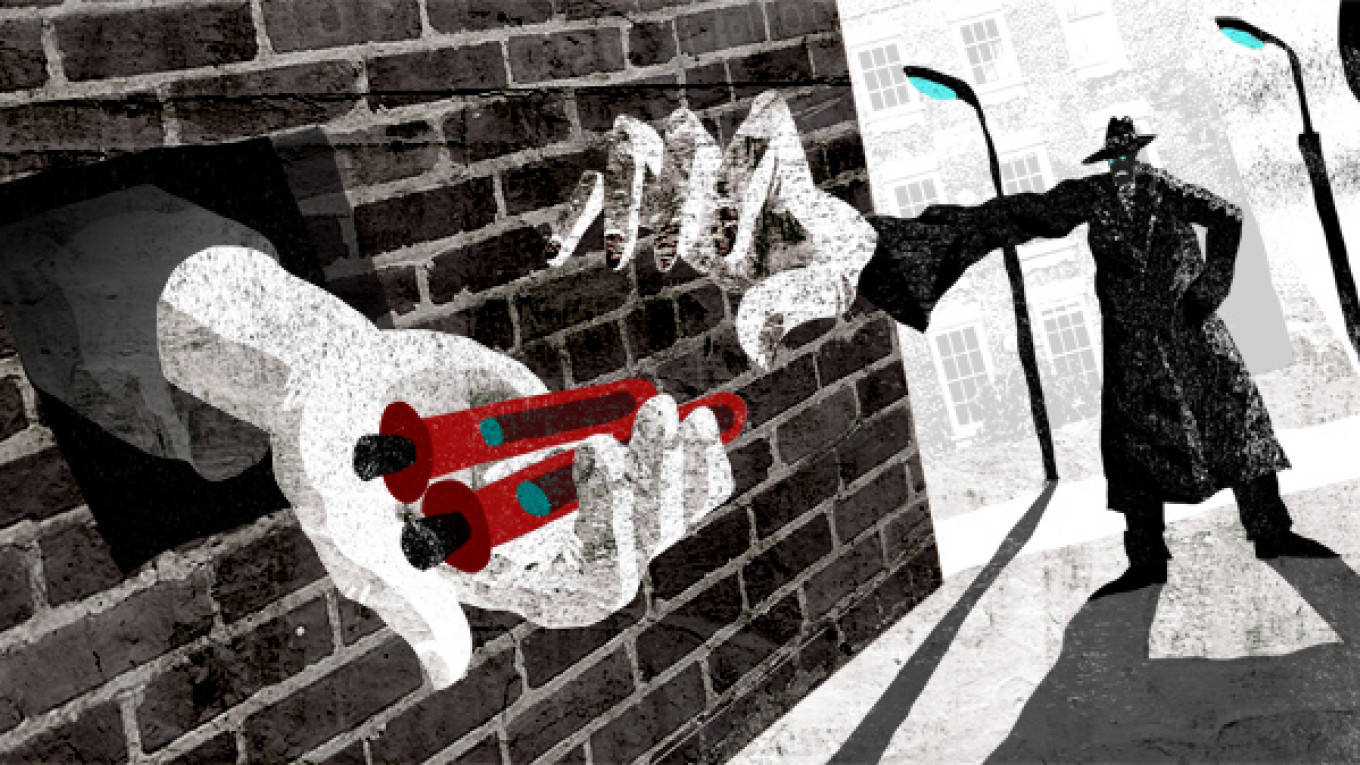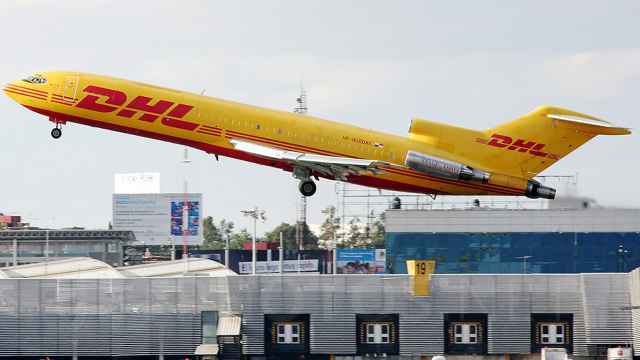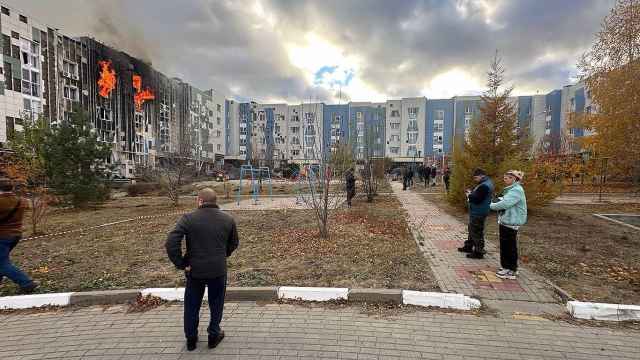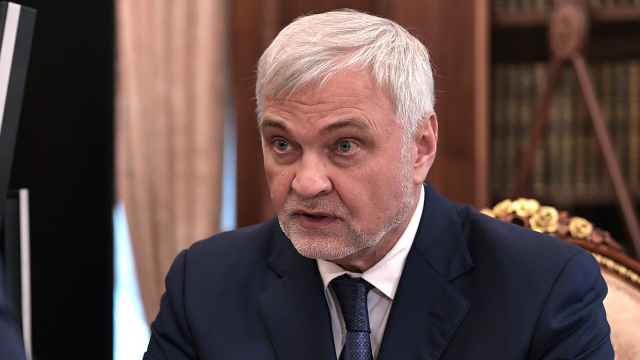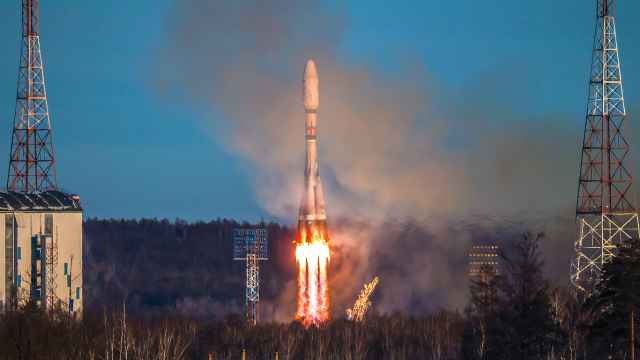The cocktail already has a name — the “Rodchenkov.” Its standard base is three shots of different steroids; the variable part is the alcohol mixer (the men get whiskey and the women, Martini). According to its inventor Grigory Rodchenkov, former head of the Moscow anti-doping laboratory, the potions delivered efficient results. In whistle-blowing comments made to The New York Times, he says he administered it to a range of Russian athletes during the 2014 Sochi Olympics.
According to the extraordinary testimony, he and his colleagues covered for the fraud at night by swapping urine samples through a fist-sized hole in a wall. Federal Security Service (FSB) officers were also said to have participated in the scheme, while the operation’s masterminds were as senior as deputy ministers. Rodchenkov had to step down from running the laboratory in November 2015 after the World Anti-Doping Agency (WADA) issued a report accusing the facility of numerous violations. He later fled to the United States, settling in California.
If his allegations are true, Russia’s impressive victory in Sochi — 33 medals, 13 golds among them — was a state-sponsored fraud. If proven, Russia’s participation in the 2016 Rio Olympics seems unlikely. But this may only be the start of the country’s problems. According to newspaper reports, the U.S. Justice Department has launched a wide-ranging criminal investigation of its own, which may result in fraud and conspiracy charges being brought against athletes, officials and others involved in doping schemes.
Truth or Dare
Following The New York Times interview, named Russian officials and sportsmen predictably denied any wrongdoing, calling the allegations “absurd,” “defamatory” and “groundless.” Kremlin spokesman Dmitry Peskov called Rodchenkov “a defector” and his statements, “defector’s slander.” Athletes, meanwhile, insisted they had passed all the necessary anti-doping tests, and expressed righteous indignation. Dmitry Svishchev, a State Duma deputy, said that Rodchenkov was “making things up,” but, just to be safe, called for an investigation into the claims.
It soon became obvious that Russian officials weren’t keen on investigating. “Cocktails? It’s silly. The sportsmen were under control before, during and after the Olympics,” said Sports Minister Vitaly Mutko. “These are the speculations of a man accused [of being involved in a doping scandal]. When people are criticized, they can say a lot of things.” Mutko added that his ministry was ready to sue The New York Times for defamation.
Rodchenkov didn’t respond to a request for comment from The Moscow Times. People who have known him for a long time, however, say that it would be inconsistent for him to invent a story like this. “He might embellish things, but he isn’t about making things up,” journalist Vladimir Ivanov, who has known Rodchenkov for years, told The Moscow Times. “He considers himself a brilliant chemist — which he, in fact, is — and is very proud of himself and his inventions.”
The scheme described by Rodchenkov in the article is entirely feasible, agrees Richard Ings, the former head of the Australian Anti-Doping Agency. “If there’s a laboratory with a lack of security, if there are athletes who are aware of the system, then the story outlined is plausible — and it’s very scary that it could actually be done that easily,” he told The Moscow Times.
The International Olympic Committee (IOC) echoed his sentiment. Its spokesman told The Moscow Times that the IOC found these allegations “very detailed and very worrying.” The committee called for an immediate investigation by WADA. “Based on the findings of a WADA inquiry, the IOC won’t hesitate to act with its usual policy of zero tolerance for doping and defending the clean athletes,” he said.
President of WADA Craig Reedie reacted promptly and promised to look into Rodchenkov’s allegations. Given the upcoming Rio Olympics, investigating this story is crucial, he said: “We fully understand that […] with the new doping allegations surfacing, we have more work to do to further secure athletes’ confidence in clean sport.”
Trouble In Paradise
Russia is already in trouble. The International Association of Athletics Federations (IAAF) has banned the national track and field team from participating in any international competitions, including the 2016 Olympics. On June 17 the IAAF will decide whether to lift the ban — and, according to Sergei Ilyukov, doctor for the Finnish national team and consultant for the Estonian anti-doping agency, the chances of that happening are slim. “The likelihood of the ban being lifted wasn’t great starting out, but Rodchenkov’s claims have made the situation significantly worse,” Ilyukov told The Moscow Times.
Currently, the rest of the Russian national team is still supposed to make the 2016 Olympics. If Rodchenkov’s allegations are proven, however, the IOC may decide to bar the entire Russian team from participating in the upcoming games, the committee’s president Thomas Bach said in a statement.
Three unnamed sources within the IAAF have confirmed to The Times newspaper that the association would not lift the ban in light of the new allegations. In written comments to The Moscow Times, IAAF spokespeople neither confirmed, nor denied this information, simply reiterating that the decision would be made public in June. Even without further sanctions, the Olympic ban on track and field athletes would be disastrous for Russia’s medal count, Russian media outlets predict.
Russian sports officialdom is nervous. On May 15, Mutko was even moved to write an op-ed for The Sunday Times, in which he apologized and begged international sports authorities to let Russian track and field team participate in the Olympics. “Serious mistakes have been made … We are very sorry that athletes who tried to deceive us, and the world, were not caught sooner,” he wrote.
Coming Clean
If Mutko’s statements mark a change in thinking, there may be progress to be made. “The first move is always admitting you have an issue, and this is a really good start,” says Ings. Russia is a “proud country,” he added, and authorities could be genuinely eager to protect the reputation of athletes and the country.
Political will is the key to resolving the crisis, agrees Ilyukov. Russian officials could jump on the opportunity and reverse the situation quite quickly. What’s less clear is whether the state is ready to invest in cutting-edge support infrastructure so that its most exceptional sportsmen no longer need to dope. “They’re not yet ready to invest in people, and people are very important in this industry. Right now Russian sport is like a [Russian-made] Lada automobile compared to a Mercedes,” he said.
Both experts believed Russian elite sport will be forced to clean up its act. “The world is changing, and the international anti-doping framework is becoming more effective, making it harder for athletes all over the world to dope,” Ings said.
Contact the author at d.litvinova@imedia.ru. Follow the author on Twitter at @dashalitvinovv
A Message from The Moscow Times:
Dear readers,
We are facing unprecedented challenges. Russia's Prosecutor General's Office has designated The Moscow Times as an "undesirable" organization, criminalizing our work and putting our staff at risk of prosecution. This follows our earlier unjust labeling as a "foreign agent."
These actions are direct attempts to silence independent journalism in Russia. The authorities claim our work "discredits the decisions of the Russian leadership." We see things differently: we strive to provide accurate, unbiased reporting on Russia.
We, the journalists of The Moscow Times, refuse to be silenced. But to continue our work, we need your help.
Your support, no matter how small, makes a world of difference. If you can, please support us monthly starting from just $2. It's quick to set up, and every contribution makes a significant impact.
By supporting The Moscow Times, you're defending open, independent journalism in the face of repression. Thank you for standing with us.
Remind me later.


